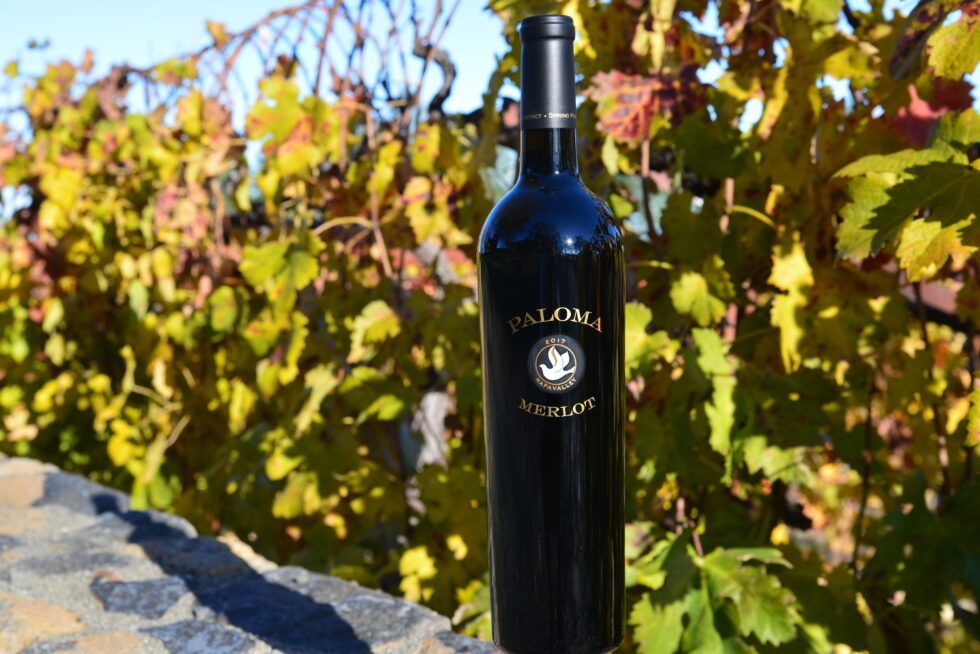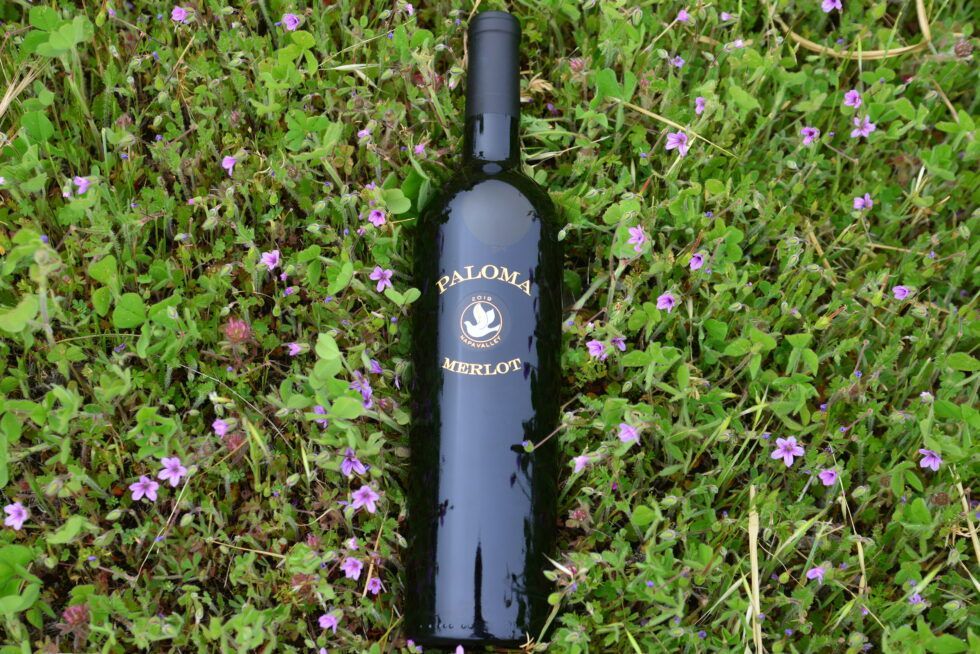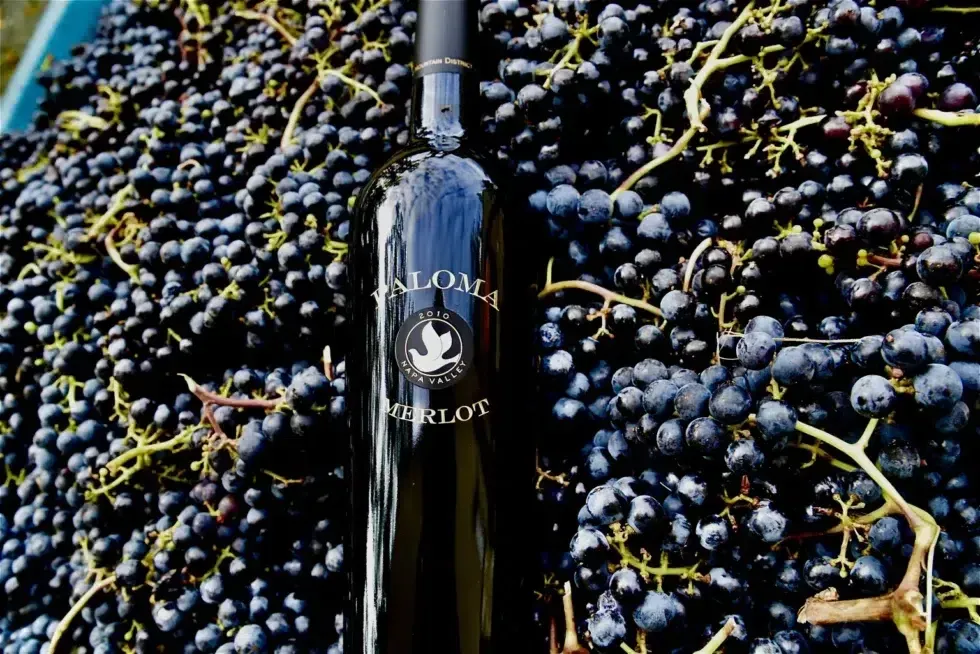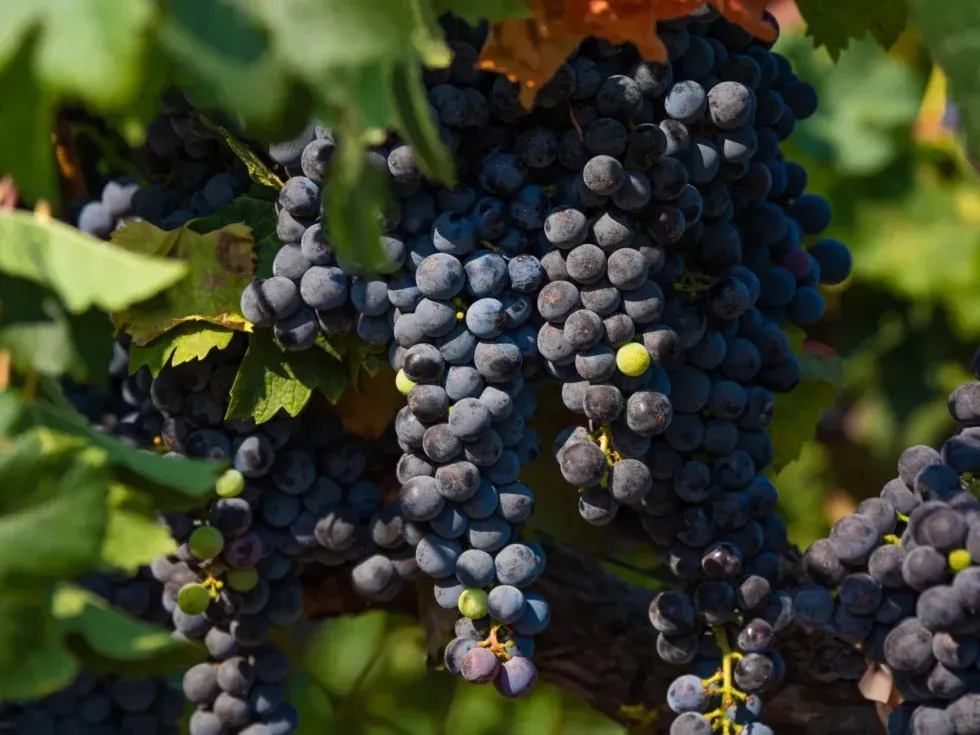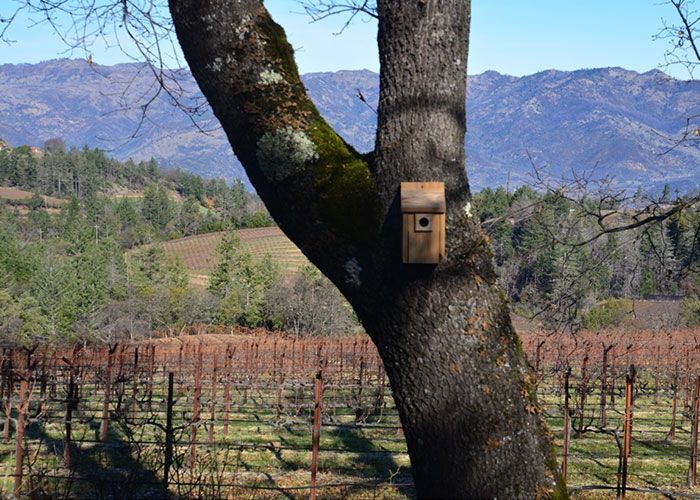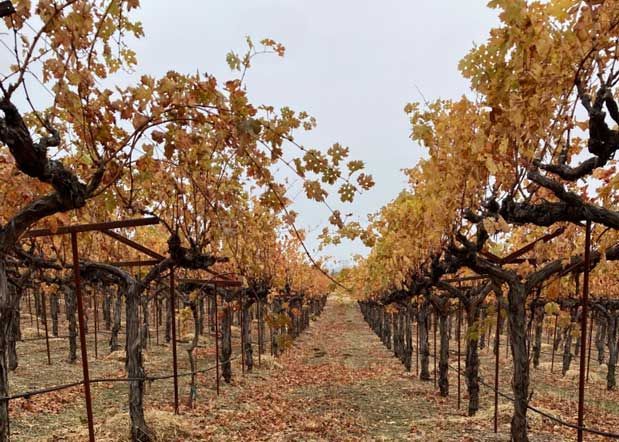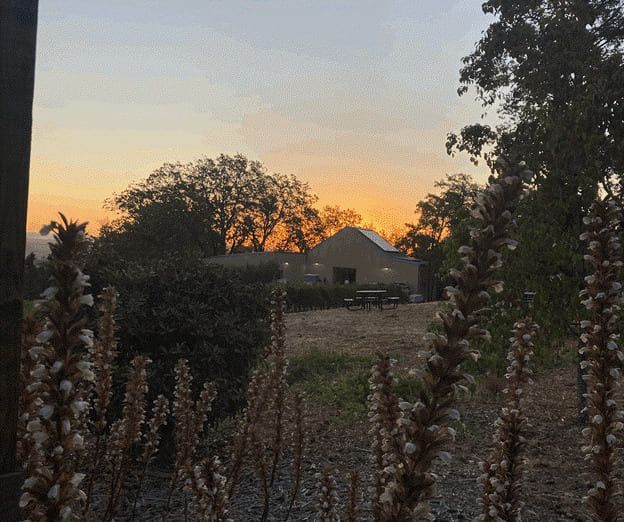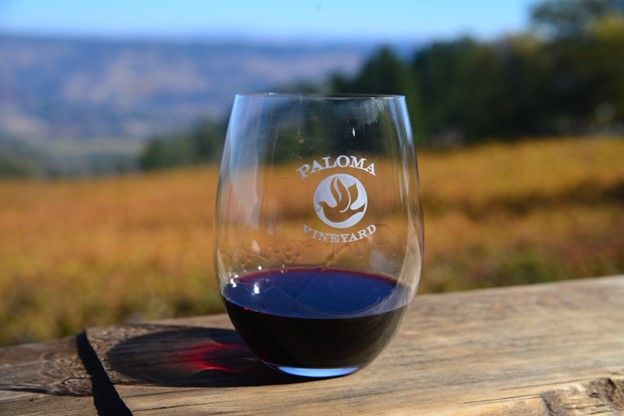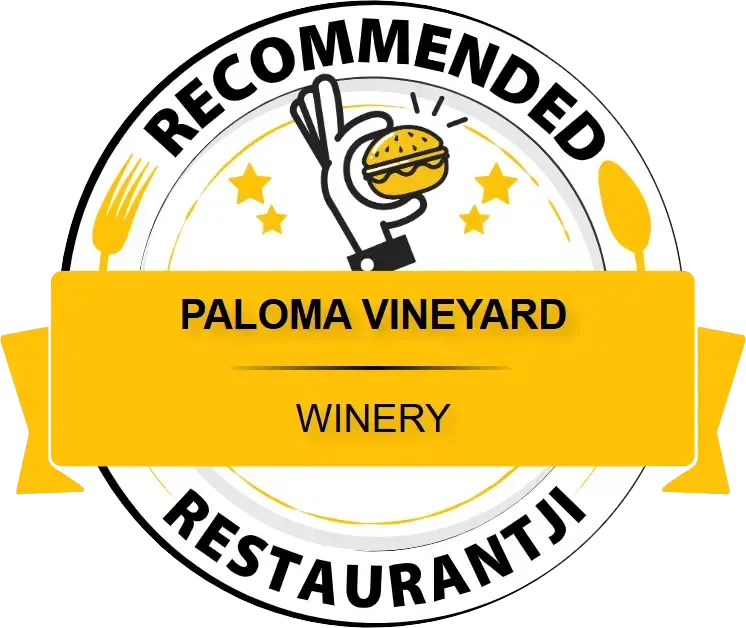Sustainability at Paloma Vineyard: A Legacy of Care and Craft
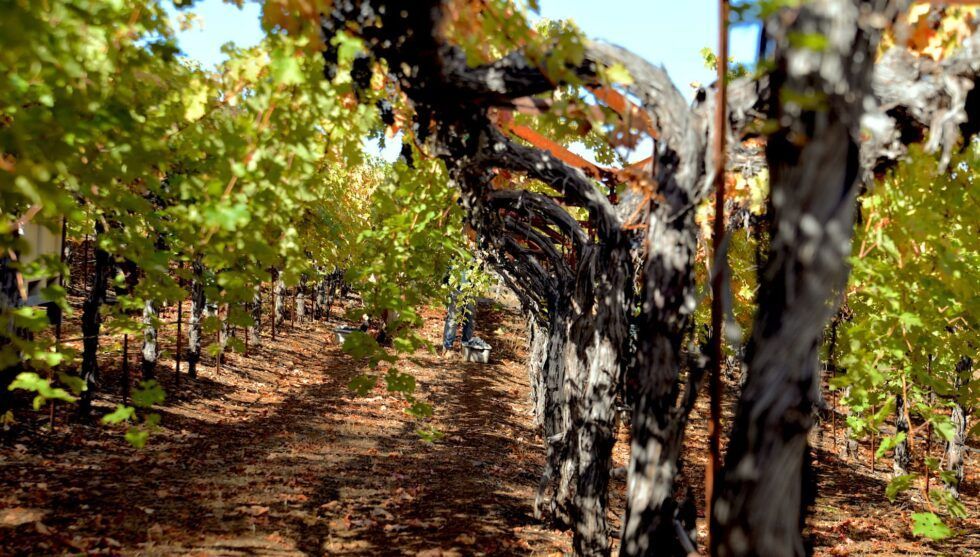
Sustainability at Paloma Vineyard: A Legacy of Care and Craft
At Paloma Vineyard, sustainability is more than just a practice—it’s the foundation of everything we do. Nestled on Napa Valley’s Spring Mountain, our small, family-run vineyard has been embracing sustainable and regenerative farming for over four decades. Every choice we make, from cover cropping to solar power, reflects our deep respect for the land and our commitment to producing exceptional wines that honor both our family legacy and the environment.
Listening to the Land: A Thoughtful Approach to Farming
Our philosophy is simple: you can’t make great wine without great vines. And great vines start with a healthy, balanced ecosystem. By working with nature rather than against it, we cultivate resilience in our vineyard while preserving the integrity of the land for future generations.
A Unique Trellising System: The modified Geneva Double Curtain
One of our most distinctive vineyard practices is our use of the modified Geneva Double Curtain trellising system. Unlike traditional Vertical Shoot Positioning, this method allows our vines to grow over a horizontal wire and extend outward, forming a natural canopy. This not only protects the grapes from harsh sun exposure but the high trained cordon also ensures optimal air circulation, protecting the grapes from winter and early spring frosts. The result? A more balanced ripening process and wines with elegance and depth.
Hillside Farming and Elevated Vine Training
Farming on the slopes of Spring Mountain presents unique challenges, but it also provides incredible opportunities. By training our vines higher off the ground, we:
- Improve Airflow: Cold air naturally flows downhill rather than settling on the vines, reducing the risk of frost damage in early spring.
- Protect Vineyard Health: Our elevated training system allows for better ergonomics for our vineyard team, making hand-harvesting and pruning more efficient while reducing strain on the body.
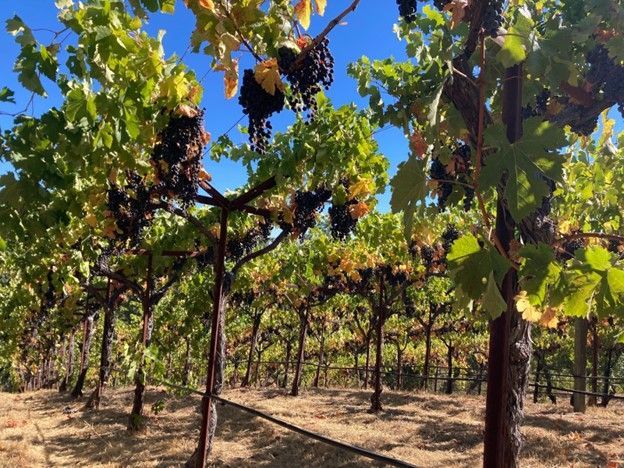
Cane Pruning for Vine Longevity
We’re also experimenting with cane pruning in select vineyard blocks, a technique that can enhance vine longevity, improve fruit quality, and diversify flavor profiles. While this requires meticulous care and expertise, it aligns with our commitment to constantly evolving in ways that support both sustainability and wine quality.
Regenerative Farming: Cultivating the Future
We don’t just sustain our land—we regenerate it. Regenerative farming is about going beyond sustainability by actively improving soil health, increasing biodiversity, and reducing environmental impact.
Here’s how we bring this to life at Paloma:
Cover Crops for Soil Health & Water Retention
Each winter, we plant cover crops such as clover, rye, and native wildflowers. These crops:
- Prevent soil erosion on our steep slopes
- Improve water retention, reducing irrigation needs
- Provide a habitat for beneficial insects and microorganisms
- Help to replenish the nutrients in the soil and improve vine resilience
Composting & Mulching for Soil Vitality
Before the winter rains arrive, we spread compost across the vineyard, fortifying the soil with essential nutrients. We then layer straw mulch to insulate cover crop seeds, ensuring they germinate and thrive through colder months. This cycle mimics nature’s way of nourishing the land, creating healthier vines and richer wines.
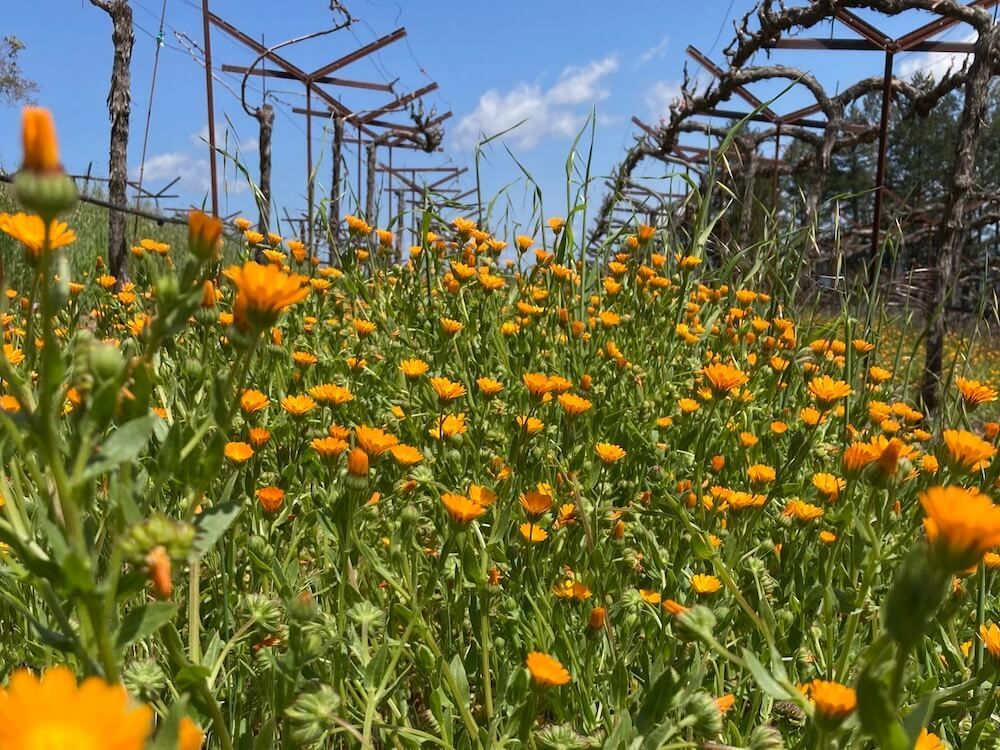
Encouraging Biodiversity for Natural Pest Control
Biodiversity is key to a thriving vineyard. We:
- Plant wildflowers to attract pollinators like bees and butterflies
- Install bluebird boxes and bat houses to encourage natural predators that keep pests in check
- Avoid the use of herbicides and pesticides, relying on nature’s balance to maintain a balanced ecosystem, and in turn, vineyard health
By fostering a rich ecosystem, we create an environment where our vines thrive with minimal intervention.
Harnessing the Sun: Solar Power & Sustainable Energy
Sustainability extends beyond our vineyard into our operations. We’ve partnered with SolarCraft to install a solar system that provides 90% of the energy used on our winery. This investment reduces our carbon footprint and ensures that every aspect of our winemaking process—fermentation, aging, and bottling—is powered by clean, renewable energy.
Sustainable Packaging: Cork & Glass Choices
Sustainability is in the details, even in our packaging. We work with:
- Amorim Cork: A leader in sustainably harvested corks, helping sequester CO₂ rather than contribute to deforestation. By choosing natural cork over synthetic alternatives, we’ve captured 8.2 tons of CO₂ in our 2023 vintage alone.
- Saver Glass: An eco-friendly glass producer, ensuring our bottles maintain quality while reducing environmental impact.
The Road Ahead: A Family Legacy Continues
As Paloma transitions to the next generation, Caston Richards is carrying forward our commitment to sustainability. He’s exploring new drought-resistant rootstocks, refining regenerative farming techniques, and rethinking how we use water to adapt to Napa Valley’s changing climate.
“Sustainability goes beyond visible changes—it’s a mindset that recognizes how every decision, no matter how small, creates a ripple effect. Whether in business or farming, sustainability is a deliberate and impactful choice.” — Caston Richards
A Commitment to Excellence and Care
At Paloma Vineyard, sustainability isn’t just a philosophy—it’s a way of life. From the vines we tend to the wines we bottle, every decision is made with care, ensuring that the beauty of Spring Mountain endures for generations to come.
So, when you open a bottle of Paloma wine, you’re not just tasting exceptional Merlot—you’re experiencing the result of decades of thoughtful stewardship, regenerative farming, and a deep respect for the land.
Cheers to a future that’s as bright as the wines we craft.
Join Us for Winetasting
Join us to learn first hand about our history and dedication to sustainable winemaking practices. We would love to host you!
